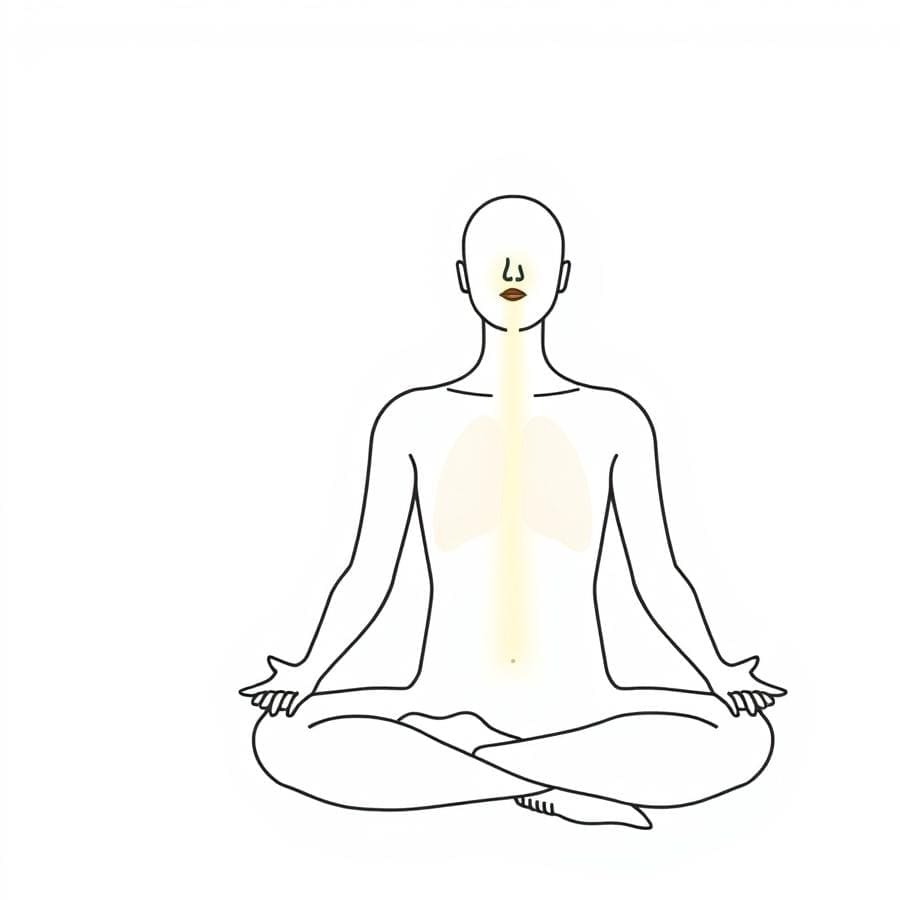Calm in the Chaos: A Beginner’s Guide to Mindfulness Meditation for Stress Reduction

The constant pressure of deadlines, notifications, and daily responsibilities can leave us feeling overwhelmed and chronically stressed. While stress is a natural response, prolonged exposure can take a toll on our mental and physical health.
Fortunately, a powerful and ancient tool is gaining modern recognition for its profound ability to combat stress: mindfulness meditation. This practice isn’t about emptying your mind, but rather about learning to observe your thoughts and feelings without judgment, creating a space of calm and control.
In this guide, we’ll explore the science behind how meditation works and provide you with simple, actionable steps to begin your journey toward a less stressful, more present life.
What Exactly is Mindfulness Meditation?

Mindfulness is the practice of being fully present and aware of where we are and what we’re doing, without becoming overly reactive or overwhelmed by what’s going on around us. Mindfulness meditation is the formal practice of cultivating that awareness.
It involves setting aside time to sit and pay attention to the present moment, often by focusing on an anchor point like the breath, bodily sensations, or sounds. The goal is not to stop thinking, but to notice when your mind wanders and gently guide it back to your anchor.
This simple act of returning your focus, again and again, trains your brain to be less reactive and more intentional, forming the foundation of stress reduction.
The Science of a Calmer Brain: How Meditation Reduces Stress

The stress-reducing benefits of mindfulness are not just anecdotal; they are backed by significant scientific research. As highlighted in a meta-analysis from the Journal of Psychosomatic Research, these benefits are well-documented. When we experience stress, our body’s sympathetic nervous system activates the ‘fight-or-flight’ response, releasing a flood of hormones like cortisol.
Chronic stress keeps these levels elevated, leading to health issues. Mindfulness meditation activates the parasympathetic nervous system, also known as the ‘rest-and-digest’ system.
According to research from Harvard Health Publishing, studies using fMRI scans have shown that regular meditation can decrease the density of grey matter in the amygdala, the brain’s fear center, while increasing it in the prefrontal cortex, which is associated with concentration and awareness. In essence, you are rewiring your brain to be less reactive to stressors and more resilient.
Your First Steps: A Simple 5-Minute Mindful Breathing Exercise

Starting a meditation practice is simpler than you might think. You don’t need any special equipment—just a quiet place to sit. Here’s a simple exercise you can do right now:
- Find a comfortable seated position on a chair or cushion. Keep your back straight but not stiff.
- Close your eyes gently or lower your gaze.
- Bring your attention to your breath. Notice the sensation of the air entering your nostrils and filling your lungs. Feel your abdomen rise and fall.
- Don’t try to change your breathing; just observe its natural rhythm.
- Your mind will inevitably wander. When you notice this, gently acknowledge the thought without judgment and guide your focus back to your breath.
- Continue this for 5 minutes. When you’re ready, slowly open your eyes and take a moment to notice how you feel.
Practicing this daily can create a powerful habit for stress management.
Conclusion
Mindfulness meditation is not a magic cure for life’s challenges, but it is a profoundly effective practice for changing how we relate to them. By consistently training our attention and cultivating a non-judgmental awareness, we can break free from the cycle of chronic stress and reactivity.
Starting with just a few minutes each day can build a foundation of resilience, clarity, and inner peace that will support you in all aspects of your life, including other mindful hobbies like container gardening. Embrace the journey of being present, and discover the calm that has been within you all along.
